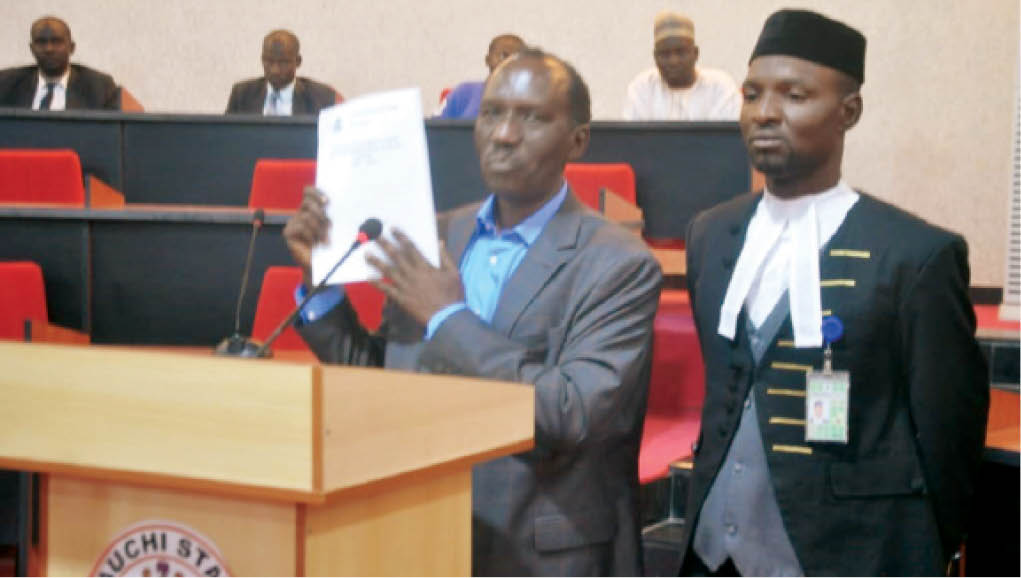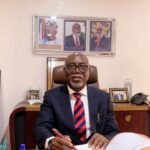Bauchi State has rolled out new policies in the education sector to deal with learning crisis and achieve effective teaching. The essence of the reform is to among others, ensure that students acquire the basic skills needed toward building a fulfilling career.
Commissioner of Education Dr Aliyu Usman Tilde is said to have introduced Biometric Fingerprint Time Clock whereby employees, particularly teachers, clock-in and out of work daily to fight cases of lateness to work, truancy and phoney workers.
The reforms in the school system also keep track of the number of class periods a teacher teaches per school day, in addition to the introduction of Jolly Phonics to improve reading skills in basic schools.
Also, students in SSSIII are now required to pass mock exams before the government pays for their Senior School Certificate Examination (SSCE) prepared by the West African Examination Council (WAEC) and National Examination Council (NECO).
However, while authorities in the state believe the reforms have far-reaching effects, stakeholders have offered diverse perspectives on them.
A secondary school teacher in Bauchi said the introduction of fingerprint clock-in device is a step in the right direction because more teachers report to work on time, though a few others who are not familiar with it are grumbling.
Another teacher said the fingerprint scanner has restored discipline and the good image of teachers in schools.
“I am happy with the introduction of the device because I now come to school on time and carry out all the lessons without skipping anyone. It has changed my attitude but honestly, teachers are not happy. The impact of the device will not be ascertained until after examination of students,” he said.
An operator of a fingerprint scanner, Abubakar Salis, said teachers are actually not happy with the timing system because it showed the exact arrival and departure periods.
He said, “I follow each teacher into the classroom for them to sign change of lesson period. But for attendance, they meet me at the principal’s office to clock-in and out. I notice their frustration, some even voice out their grievance about the device.”
An SSS 3 student at Dr Ibrahim Tahir Memorial School, Ahmed Abdullahi, said apart from the teachers, students too, no longer arrive late to school and hardly leave without genuine reason.
He said, “You hardly see teachers outside during working time; students also try to be like their teachers.”
Meanwhile, over 8,000 final year secondary students who are caught up in the policy of passing a mock exam as prerequisite for state sponsorship of SSCE have staged a peaceful protest.
Shortly after, commissioner Tilde was summoned by the House of Assembly where he explained that the protest was state-managed by a few teachers who benefitted from the old system and that the policy for exam sponsorship was first made in 2008.
He said, “When I came on board, I learnt that WAEC and National Business and Technical Examinations Board (NABTEB) have withheld Bauchi students’ results because the state did not pay a Kobo from the bill of N612 million for students it sponsored.
“We had to device means with the commissioner of finance to look for alternative source to pay half of what we owed these examination bodies so that they will release the results of our students. Upon payment of the money, they released the results. Still, the state owed them N286 million.
“I queried how the bill amounted to N612 million. I discovered that some of the students were not from Bauchi.
“I inquired why results of mock exams were not released and there was no concrete explanation. I understand they were just allocating marks. I also discovered that all schools had the same answers, meaning they copied the answers directly from prepared answers.”
Subsequently, the commissioner explained that teachers will not be allowed to organise mock exam, rather, some graduates who were former students of special schools were hired to conduct the exam.
He said students were asked simple questions such as what are the items sold in your market? But many of them failed.
He added that after the exam, 6,017 students passed and “we said the number is too small. We selected more from mock conducted previously. That’s how we arrived at more than 12,000.
“Some principals took our notification of the examination very serious. For example in Disina 79 wrote the exam and 54 passed because they were prepared; their principal took the notice very serious.”
The lawmakers later took turns to ask the commissioner to clarify issues concerning the new reforms and to reconsider a few items.
Responding, Dr Tilde said the law on payment of exam fees for students who passed the mock exam was made by the House and if it is repealed the executive must comply.
He said teachers attend classes regularly as a result of the introduction of fingerprint clock-in and principals did not have to monitor attendance lists.
On the status of students who failed the mock exam, he said they are free to pay for themselves and write the examination.
He said, “We are not stopping them from writing the examination. That is why we requested WAEC to extend the registration period. There is also NECO examination; they can pay from now to May.”
He said there is a plan to reintroduce the promotion exam in schools. “We have now resolved that only eligible students will move to the next class. It’s because there is no promotion and demotion that students do not care to read.”
The commissioner told the lawmakers that to get the required students outcome, the government was making more investment to improve school infrastructure.
Also, plans are underway to reduce the number of boarding schools with the permission of parents, he stated.
He said, “We seek the approval of the executive council that any school with low students figure should be made a day school but with the consent of the host communities. We understand in northern Nigeria people prefer day school because of security and other things.”
On the timeliness of the reforms, he said all new policies were implemented at the early stage of Governor Bala Mohammed’s administration to enable the people to be familiar with them, adding, “even if everything will be politicised, education should be spared. Because of politics and elections, we allow everything to deteriorate.
“If you are destined to win, a certain factor that favours you will divinely come up and give you election victory. Therefore we should not derail from doing the right things for the fear of losing election.”
In the end, Speaker Abubakar Y. Suleiman said the House will discuss the new education reforms put in place and do something official.
One parent, Abubakar Abdullahi, whose son allegedly failed the mock exam said the action of the teachers will jeopardise the academic future of thousands of children and increase the number of dropouts in Bauchi.
Another parent, Aliyu Adamu Warji, said parents were caught unawares and thus, ill-prepared for the new reforms.

 Join Daily Trust WhatsApp Community For Quick Access To News and Happenings Around You.
Join Daily Trust WhatsApp Community For Quick Access To News and Happenings Around You.


